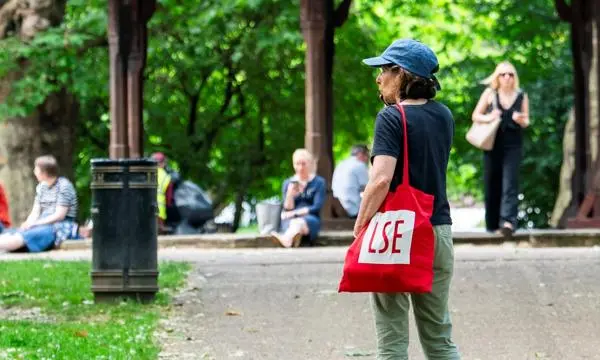Rebuilding support for climate action in London
The Climate Crisis is the most significant challenge facing the UK and the world today.
Limiting the rise in global temperatures by cutting carbon emissions and adapting to the consequences of climate change require fundamentally rethinking how our societies are organised.
London is one of the world's leading cities for climate action and, as London's leading university, LSE has worked in the capital, the UK and around the world to help political leaders build support for and effectively deliver climate action.
Jump to: our roundtable series with the Greater London Authority
The politics of climate are changing
In Britain today, 84% of people believe in climate change (YouGov, April 2025) and 72% are worried about its impact on the UK (Ipsos, April 2025), but recently polling showed just 16% identified it as one of their top three concerns compared to 58% for immigration, 51% for the economy and 29% for health (YouGov, 2025).
As the introduction of the Ultra Low Emissions Zone (ULEZ) and Low Traffic Neighbourhoods (LTNs) have shown, policies with clear environmental and practical benefits can still face significant opposition from parts of society when they do not see their concerns or needs reflected in the changes.
LSE is helping policymakers rebuild consensus for climate action in London
Our motto is to know the causes of things, and our purpose as one of the world's leading social science universities is to work for the betterment of society. London has led the world in showing that taking action for the climate is possible and worthwhile, and as an institution that sits at the heart of this great city, our academics are working to help policymakers rebuild consensuses for climate action.
Read: our roundtable series with the Greater London Authority
Over the summer of 2025, we worked with the Greater London Authority (GLA) on how we rebuild support for climate action by exploring how policymakers can connect climate policy to Londoners' social, racial and economic justice priorities.
To do this, we organised a series of roundtables exploring the question from three perspectives: the community perspective (involving community groups, charities, experienced activists and organisers), the policy perspective (involving policymakers, sector professionals, third sector and advocacy organisations, and academics) and then a mixture of the two at a roundtable chaired by Mete Coban MBE, the Deputy Mayor of London for Environment and Energy.
We've created a summary of the series that captures some of the key findings from the conversation, including:
- Connecting action on climate change to Londoners’ social, racial and economic justice priorities requires moving away from the language of sacrifice and towards a much more positive vision that addresses both justice and climate priorities together.
- To do this, climate action must be approached in a more holistic way that recognises it as both a significant piece in the puzzle of issues Londoners are facing and as an integral part of the solution to those problems.
- This means, instead of treating climate as a distinct policy area, it should be integrated into every policy area—from housing to health to education—while simultaneously ensuring that every climate initiative addresses Londoners' social, racial, and economic justice priorities.
- This has significant implications for how government is organised, how it engages with communities and why it needs to do more to empower those communities to take action.
Read: four examples of new methods for understanding communities and their priorities on climate action
Research shows that there are plenty of novel methods for policymakers to rebuild consensus for action on climate change. In the document below, you can read about:
- Evidence from LSE Cities showing using deliberative engagement methods and focusing on fairness can win even frequent drivers in London around to the idea of limiting car use.
- A project at the LSE Faith Centre exploring how the language of religion and faith offers a new way of talking about climate change with London's religious communities.
- A paper from Dr Alison Powell showing how the flaws in online consultations and the limits of objective data polarised public opinion around LTNs and created a vocal minority who opposed it.
- A peer-research collaboration with Islington Council exploring what young people in the borough think about the climate crisis and how policymakers can better engage with them.
